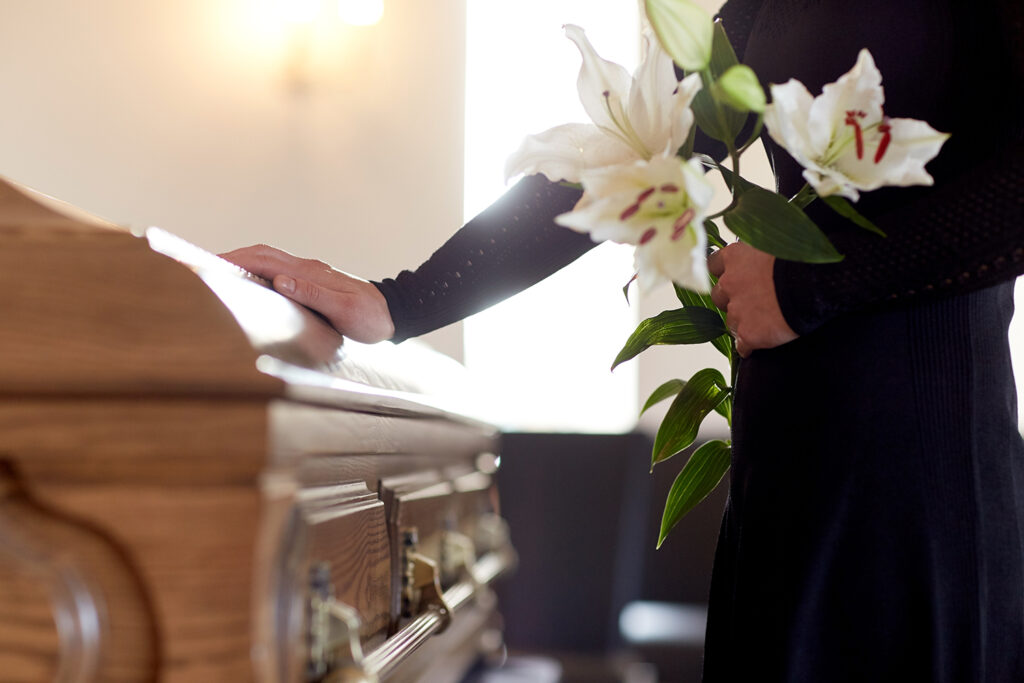Registering a death is one duty a Funeral Director is unable to carry out on your behalf. A legally responsible person needs to complete this – this is normally a relative, executor or someone present at the death. To register a death you will usually need to attend the Register Office where you will meet with the Registrar.
When attending the Register Office, you must either take the Medical Certificate of Cause of Death (MCCD) which will have been issued by a doctor or the MCCD will have been sent electronically to the Register Office ahead of your appointment.
You can call the Register Office on 0300 1234 181 should you have any questions, or visit their website.
When Someone Dies
The Registrar will need the following information:
If available (but don’t worry if not) it’s also useful to have some of the following documents relating to the deceased person:


When you register the death, you will receive the following:
A Certificate for Burial or Cremation (the Green Form) which gives permission for burial or an application for cremation.
A Certificate of Registration of Death (Form BD8). This is used for social security purposes.
Both above forms are free of charge but now you can also request extra copies of the death certificate which will be useful for dealing with the deceased person’s affairs. These are available at the time for £11 each – be sure to purchase enough copies, you’ll be surprised how many you may need.
When the Coroner becomes involved
If a death has been reported to the Coroner, you cannot register that death until you have the Coroner’s permission.
As with every step, please call us on 01209 211684 if you have any concerns.
A death will be reported to the Coroner if:
After reviewing the case the Coroner may decide the cause of death is clear and, if this is the case:


Post-mortems
The Coroner may ask for a post-mortem to be completed to find out how the person has died.
When the post-mortem has been completed and no further examinations are necessary the Coroner will allow the funeral to go ahead. If an inquest is not required, the Coroner will issue Form 100B (the Pink Form) to the registrar which states the cause of death.
If the deceased is going to be cremated the Coroner will also issue Cremation Form 6.
A Coroner will hold an inquest if the cause of death is still unknown, or if the person:
If this is necessary, the death cannot be registered until the inquest has been completed. Once this has happened the Coroner is responsible for sending the relevant paperwork to the registrar.
Although the death cannot be registered until after the inquest, the Coroner can give you an Interim Death Certificate to confirm the person has passed. This can be used to notify organisations of the death and to apply for probate.
The funeral can still go ahead as the Coroner will supply to the funeral director an Order for Burial (Form 101) or Certificate of Coroner (Cremation Form 6).
Tell Us Once
Tell Us Once is a service available via the Register Office.
It enables you to notify Government departments/organisations all in one go.
Using this scheme can take a lot of worry away from you and avoids having to send multiple copies of the Death Certificate.
Life Ledger
Life Ledger is a free, easy-to-use service similar in principle to Tell Us Once.
It allows families to contact all of the businesses connected with the deceased from a single point, saving time and removing the need to have the same difficult conversation over and over.



